UNDER ONE ROOF

STRATEGIC PLAN


STRATEGIC PLAN
Jewish Family & Children’s Service (JF&CS) cares for individuals and families by providing exceptional human services to help build a strong foundation for resilience and well-being across the lifespan, from infancy to old age.
JF&CS’s integrated services help people address mental health and well-being, economic insecurity, and disability support. Our work is guided by the Jewish traditions of social responsibility, compassion, and respect for all members of the community. JF&CS proudly serves people of all faiths and backgrounds.
With a staff of over 250 professionals and 2,200 volunteers, JF&CS serves more than 15,000 people each year throughout Eastern Massachusetts.


It has been five years since JF&CS’s last strategic plan. In that time, our community has been through a global pandemic, experienced a nationwide increase in mental health needs, witnessed the atrocities of the October 7attack on Israel, and experienced rising antisemitism at home.
Amidst these major events, JF&CS has responded to community needs by creating new services, enhancing existing ones, and building strong partnerships across the community. We created a new Mental Health Connect helpline, expanded our Family Table
Amid significant community needs, JF&CS took an intentional and disciplined approach to choosing organizational priorities that maximize our impact. In the last JF&CS strategic plan, we identified a set of criteria that continues to guide our work.
food pantry, launched services to combat the youth mental health crisis, helped displaced Israeli families, and more.
JF&CS approached this strategic planning process with the needs of our Greater Boston community in mind. We gathered extensive data and community input to build this plan at the intersection of those needs and JF&CS’s unique strengths.
The data showed that JF&CS has a profound impact. We reach people at life-changing moments and help them through to the other side. Our clients may come to us when they become new parents, as they prepare for a child with special needs to turn 22 and age out of school support, or when a loved one receives an Alzheimer’s disease diagnosis. In all cases, JF&CS staff show up each day to help people make life manageable with services that have been recognized locally and nationally for excellence and innovation.
Our research also demonstrated that JF&CS is uniquely impactful because we take a holistic approach to meeting life’s challenges and offer multiple services under one roof. When clients face a problem, we see all the related challenges and work to address the whole picture. We may serve a domestic abuse survivor who needs safety planning, mental health support, emergency financial assistance and parenting support—all in one place. Our integrated approach positions us as the go-to place for people to call when they need help, especially for issues impacting the Jewish community.
Through our strategic planning process, we identified five priorities that will guide our work through the complexity of the next five years:
Expand services to meet growing mental health needs:
JF&CS will offer expertise, guidance, and partnership to help individuals and families improve their mental health. Strengthen early parent-child relationships:
JF&CS will expand and scale proven work to strengthen positive caregiver relationships that promote healthy child development during the critical early years.
Advance independence for people with disabilities:
JF&CS will promote independence and community access for people with intellectual and developmental disabilities as a significant number of individuals transition to adult services.
JF&CS will empower individuals to age with dignity by supporting both older adults and their caregivers at a time of unprecedented growth for this population.
JF&CS will fulfill our unique role of caring for the social service needs of the Jewish community at a time of rising antisemitism, anxiety, and disconnection from traditional institutions.
Over the next five years, we will build on our existing expertise in each of these areas to help our community move from vulnerability to strength. This work will require all of us—lay leaders, staff, volunteers, partners, donors, and community members alike—to come together to make our shared vision for our caring community a reality.
This plan is the result of work driven by a committee of JF&CS board members and executives, supported by external consultants, that engaged nearly 1,000 people— community leaders, social service experts, clients, staff, board members, donors, and volunteers—to develop a comprehensive view of JF&CS. We gathered input and feedback about community needs, current JF&CS services, and opportunities for greater impact through:
A community survey that generated nearly
700 unique responses.
Approximately 75 one-on-one interviews with experts and leaders in the Jewish community and the broader human services field.
15 focus groups with staff, board members, advisory committee members, volunteers, donors, and other community members, totaling 150+ participants.
internal and external data mined to uncover demographics, trends, and dimensions of challenges and solutions.
With the knowledge gleaned from this process, we crafted priorities and goals focused on how to meet our community’s needs most effectively while maintaining our exceptionally high standards of care.

ecent years have brought intense stressors to our community, along with demographic and societal shifts that are changing people’s lives. These stressors and shifts are hardest for those who are most vulnerable, and even harder for those who face multiple challenges. In creating this plan, we examined data from both JF&CS and external sources. Five key trends have particular relevance to our work:
1. Pressing needs in the mental health space: More than one in three Massachusetts adults have reported a mental health need for themselves or a close relative.4 For certain populations, the need is even more acute: Nearly three in five teen girls felt persistently sad or hopeless,5 and one in five new mothers suffered from perinatal mood disorders.6 People often do not know where to turn in a system with notorious waiting lists and financial burden.7

JF&CS Mental Health
Connect is our fastest growing helpline, averaging four new calls a day, or over 1,000 calls per year.
2. An affordability crisis in Massachusetts, leaving people at risk of hunger and homelessness: Massachusetts has the second-highest cost of living in the country and the thirdhighest median home price nationally,1 with income inequality worsening over the last decade.2 Nationally, nearly 20% of U.S. Jewish households struggle to make ends meet.3 At JF&CS, the number of calls to the Emergency Financial Assistance helpline increased 17% over the last year alone. Many people who helped others in better times are unnerved to find themselves in need of our support today.

3.

Major growth in the number of people with disabilities aging out of the school system: About 1,500 people with a significant intellectual or developmental disability in Massachusetts turn 22 every year, a number that has doubled over the last decade. Only 70% of young people who transitioned to adulthood in the last three years are receiving services, and as many as 5,000 people statewide are estimated not to be receiving the help they need.8 This increase in demand is seen at JF&CS, where the percent of new clients seeking support in their 20s has increased nearly 50% in the last three years.
4.
Significant demographic shifts in aging: Over 1.2 million people aged 65+ live in the Commonwealth of Massachusetts,9 and by 2030, one in every five people in the state will be over 65.10 All deserve a sense of agency, community, and

dignity, yet many will experience physical and neurological challenges, the loss of loved ones, and isolation. The JF&CS SeniorDirect helpline saw a nearly 20% increase in calls between 2021 and 2023 and has continued to expand.
5. Rising antisemitism and angst: For the Jewish community, all these challenges have been amplified by the collective trauma of October 7 and its aftermath: An alarming 74% of American Jews reported feeling sadness, anger, fear, and exhaustion.11 In the days after the attack, JF&CS received a 100% increase in the typical number of calls to our Mental Health Connect helpline. With more than half of Jewish adults also reporting they attend synagogue seldom or never,12 there is a growing need for the social service sector to offer opportunities for Jewish connection, resources, and healing.
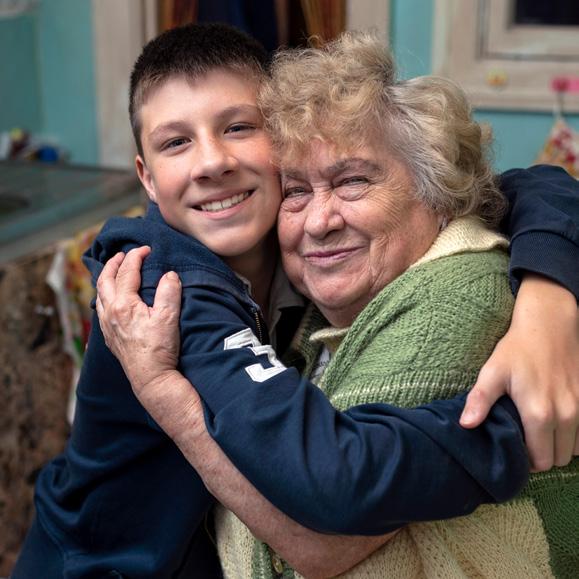
For over a century, JF&CS has served those in the Greater Boston community who need our help the most. This plan combines knowledge gleaned from our deep connections in the community with a careful assessment of societal trends so that we can successfully support our community through this challenging, changing world.
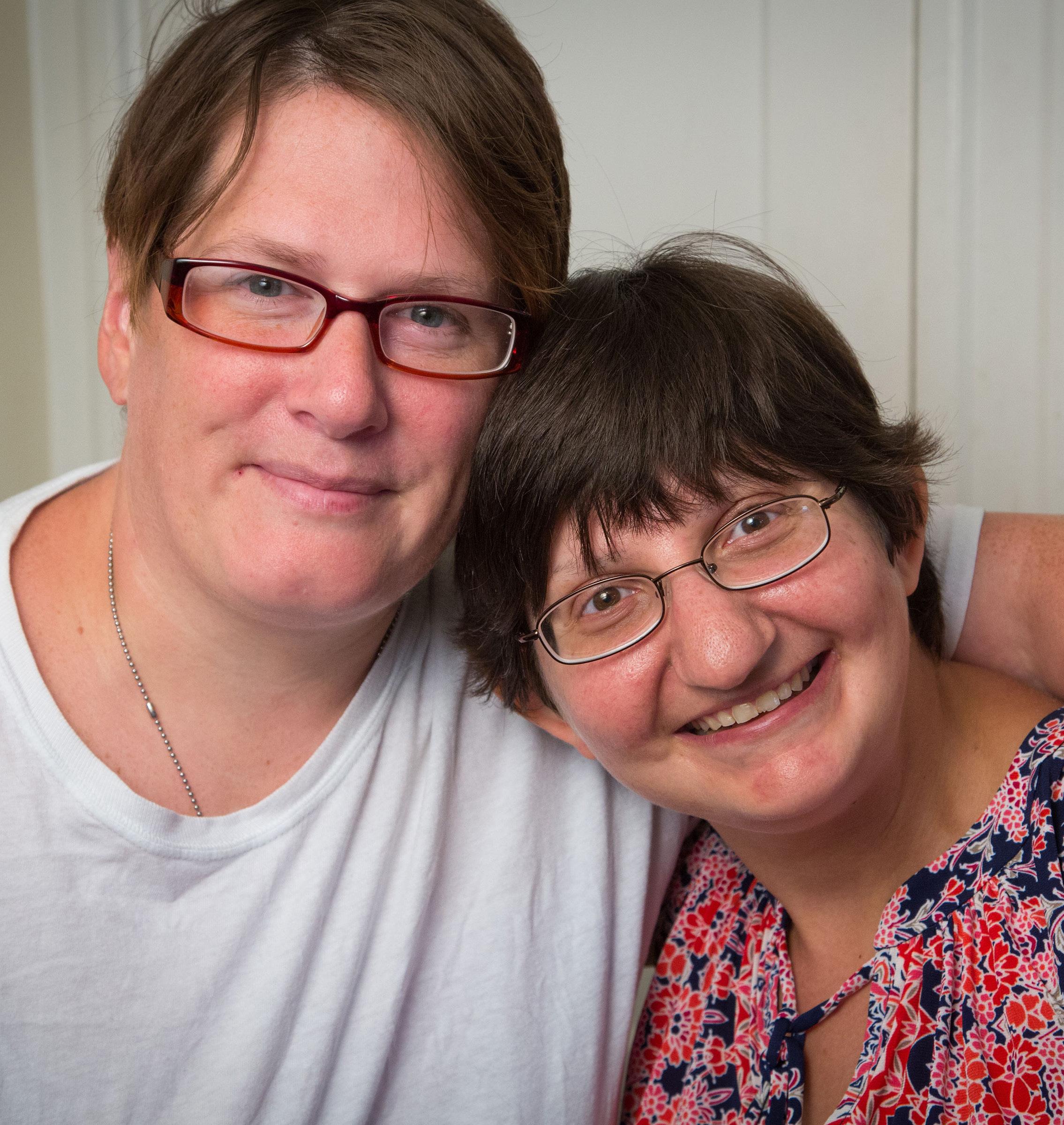
Interviews, focus groups, and survey responses highlighted the critical and unique elements of JF&CS’s model: compassionate, barrier-free access to services; a broad and deep set of expertise; and an integrated set of supports to address the multifaceted challenges people face—all under one roof.
“I felt so held. They were compassionate. They listened. They were just a light in the darkness.”
—Former client
When people are struggling, it can be nearly impossible to navigate the complex systems that stand between them and the resources they need. JF&CS strives to make it easy for those in need to ask for help. We meet those who come to us with warmth, respect, and know-how. Dozens of highly trained social workers and clinicians offer exceptional care that is recognized throughout the social service community. JF&CS offers an essential support system to people of all financial levels, ensuring that every person and family receives the highest level of care, regardless of their means.
JF&CS’s integrated model allows us to address what may be most visible or challenging for an individual at a specific moment in time, as well as underlying issues that can be less visible and much harder to address. If someone seeks help around food insecurity, we will address that need, but we may also uncover housing, mental health, or domestic violence issues that led to the food crisis, and we will offer specialized services to address those issues as well.
JF&CS helps over 15,000 people in our community each year not only to survive but to thrive through this integrated, holistic approach to providing services.
Our work has been recognized locally and nationally for innovation, impact, and quality:
• We introduced Memory Cafés in Massachusetts to support people with dementia, helped replicate the concept hundreds of times, and were honored as a recipient of the national Maude’s Awards for our work to empower people living with dementia.
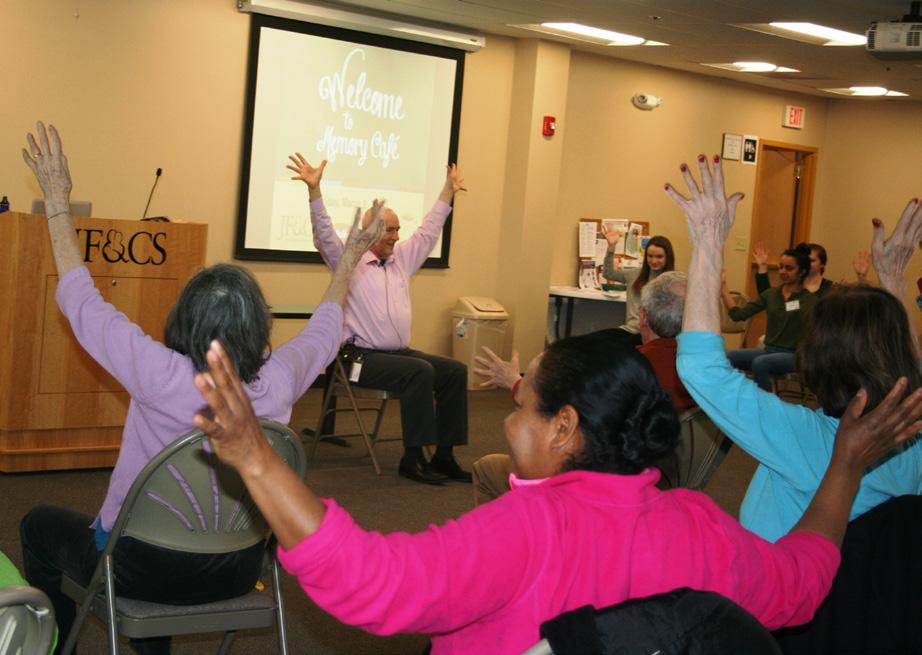
• Family Table is the largest kosher food pantry in New England and was among the country’s first to offer a large-scale delivery model.
• Our Project NESST program, which supports new parents in recovery from substance use, was foundational in the development of a statewide program.
• We received an almost unheard of 97% on our state audit of our residential, day, and employment services for adults with intellectual and developmental disabilities.
• In 2022, 2023, and 2024, JF&CS was named one of the Top 100 Women-Led Businesses in Massachusetts by The Boston Globe and The Women’s Edge.
Collaboration across the community is key to all of our work. Instead of duplicating services, we leverage partnerships to extend our reach:
• JF&CS serves as an expert resource on public benefits and legal services for the Combined Jewish Philanthropies (CJP)’s AntiPoverty Initiative and our partners in the Jewish community.
• We provide early childhood mental health guidance to hospitals, shelters, and early childhood centers in Boston through our Center for Early Relationship Support.
• Family Table convenes 49 hunger-relief organizations to work together as part of the Greater Boston Hunger Network, and we leverage our partnership with the Greater Boston Food Bank to access lower-cost food.
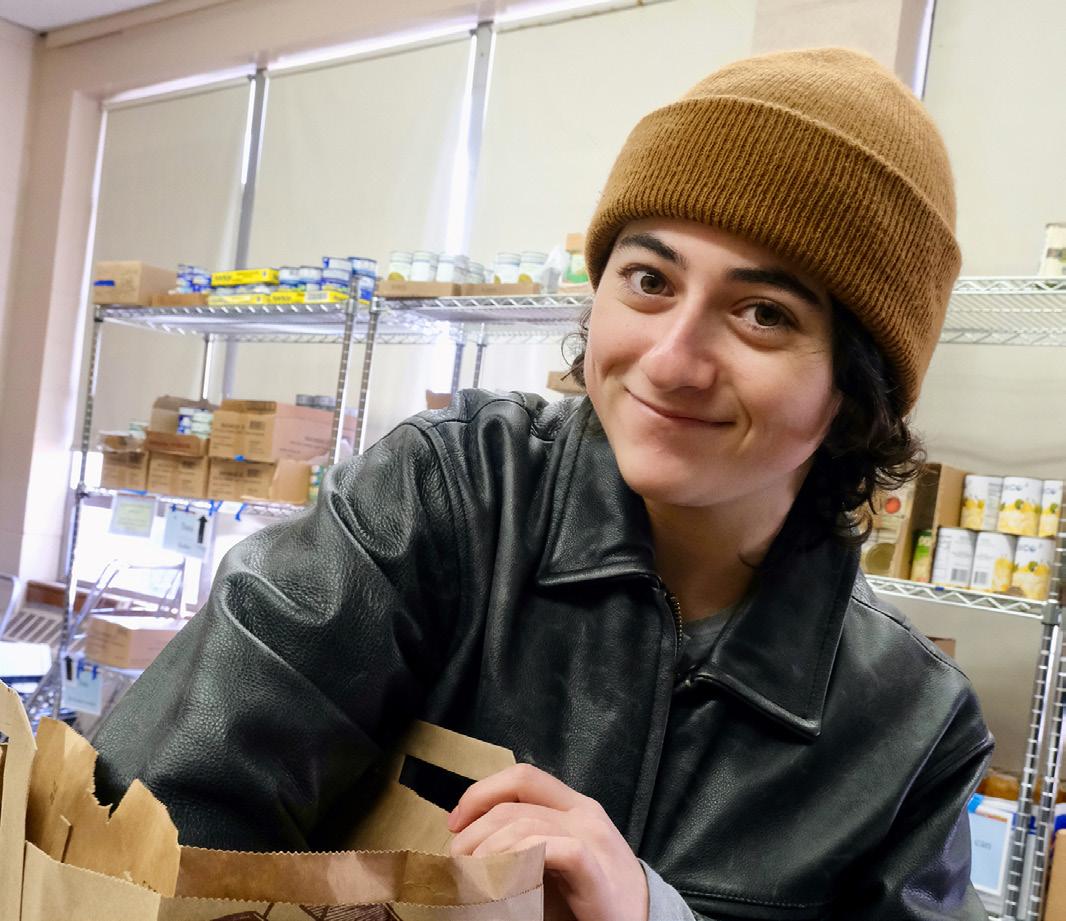
• We work with organizations across Greater Boston to offer dozens of trainings and workshops that help people age with dignity.
• We galvanize more than 2,200 volunteers each year to provide impact far beyond what our staff can do alone.

JF&CS’s work is rooted in our core Jewish values of charity and justice (tzedakah), loving-kindness (chessed), repairing the world (tikkun olam), and welcoming the stranger (hachnasat orchim). We embody these values by helping people at their hardest moments and treating our clients with the utmost respect. The many volunteers who serve JF&CS come here to live out these values and, often, to pass them on to their children.
JF&CS plays a unique role serving the Jewish community. Our Schechter Holocaust Services program serves over 400 Holocaust survivors and is the only program of its kind in Greater Boston. Our group homes for adults with disabilities are the only formal residences in the area that offer kosher food, Jewish holiday celebrations, and a monthly Shabbat dinner. Family Table provides kosher food to families in need and traditional food for Jewish holidays—helping struggling people experience both joy and community.
Approximately half of our clients across all JF&CS programs are Jewish. We pay special attention to outreach in the Jewish community, with a goal of every Jewish person in Greater Boston understanding that JF&CS is here to help them when they need us.
Because of our Jewish values, JF&CS proudly serves all people in need, regardless of faith or background. JF&CS clients come from all religious backgrounds and represent a wide range of races, ethnicities, neighborhoods, and income levels. The concept of “welcoming the stranger” means that JF&CS aims to create a sense of belonging for all, with particular sensitivity to people who have experienced discrimination or marginalization. We intentionally create ties to historically underserved populations,
such as through our work with preschool teachers in Black and Latino communities. JF&CS sometimes provides the first meaningful interaction with the Jewish community for our non-Jewish clients—a positive way to proudly live our values. This work builds bridges across all communities, and in doing so, serves as a powerful deterrent to antisemitism.
“I am writing to express my sincere gratitude for my Hebrew Free Loan. As a single parent to three children, including one with autism, the loan provided muchneeded support when I was unable to work. I am dedicated to giving back to the Jewish community that supported me during a time of need.” —Former client
JF&CS has an opportunity to build partnerships and create impact in our home base of Waltham, a community with significant need. More than one-third of Waltham residents speak a language other than English at home; more than 40% are people of color; and more than 9% live below the poverty line.13 By partnering with local Waltham institutions such as schools and senior centers, we can maximize our resources to make significant impact and continue to embody our Jewish values.
JF&CS’s impact is built on the stewardship of our resources through an efficient and diversified revenue model, coupled with our integrated service strategy. This approach allows us to optimize our funding and ensure every dollar has maximum impact.
JF&CS strives to maintain its consistent 4-star Charity Navigator rating. We intentionally keep our overhead rate low, in the range of 15%, an efficiency which is enabled in part by our breadth and scale. With multiple services under one roof, each JF&CS social worker can address a wide range of challenges, so the impact of each service dollar is high. Our exceptional volunteers are also key to our financial success, contributing the equivalent of over $950,000 per year through their service. We have consistently balanced our budget for the past five years.
Three revenue streams feed the diversified revenue model that optimizes our income sources:
more than half of JF&CS funding
engine for innovation and excellence
Government funds offer a revenue foundation for much of our work, which enables our philanthropy to have the greatest impact.
Philanthropy enables us to innovate, offer the highest quality services, and create proofs of concept to secure future funding.
FEE-FOR-SERVICE represents a growth opportunity
Our fee-for-service structure ensures that individuals who have the means pay for our quality services and help fund access for those who cannot afford to pay.
More than half of JF&CS’s financial resources come from GOVERNMENT FUNDS, including through state and federal grants, and the German government through the Conference on Jewish Material Claims Against Germany. We use this funding to support residential and day programs for people with disabilities; serve people who have experienced trauma, including Holocaust survivors; expand programming for individuals with Alzheimer’s disease; and much more. We also work with clients to unlock additional direct government benefit dollars, such as SNAP benefits (food stamps), which further magnifies our impact in the community.
PHILANTHROPY allows JF&CS to build on government funding to innovate, respond rapidly, provide the “extras” that lend dignity and excellence to our services, and increase our impact. It also provides a much-needed safety net to ensure continuity of our services, even during large swings in government funding. For many of our services, such as JF&CS Family Table, we receive little or no government support; philanthropy is the engine that enables us to provide these services at all.
Our philanthropic funders include both individuals and foundations. We are immensely grateful to our largest philanthropic funder, Combined Jewish Philanthropies, for their generous support, which accounts for approximately 8% of our total revenue and 30% of our philanthropic revenue. The remaining 70% of our philanthropic revenue comes from 2,400 donors, ranging from children donating their allowances to those making seven-figure gifts.
While some of JF&CS’s services are specific to lowincome populations, other FEE-FOR-SERVICE programs are available to people of all income levels. JF&CS offers essential supports to people of all financial levels facing challenges related to mental health, parenting, aging, disabilities, and more. We believe those who can afford services should pay for them; this supports our continued investment in excellence and enables us to provide highquality subsidized services to those in need.
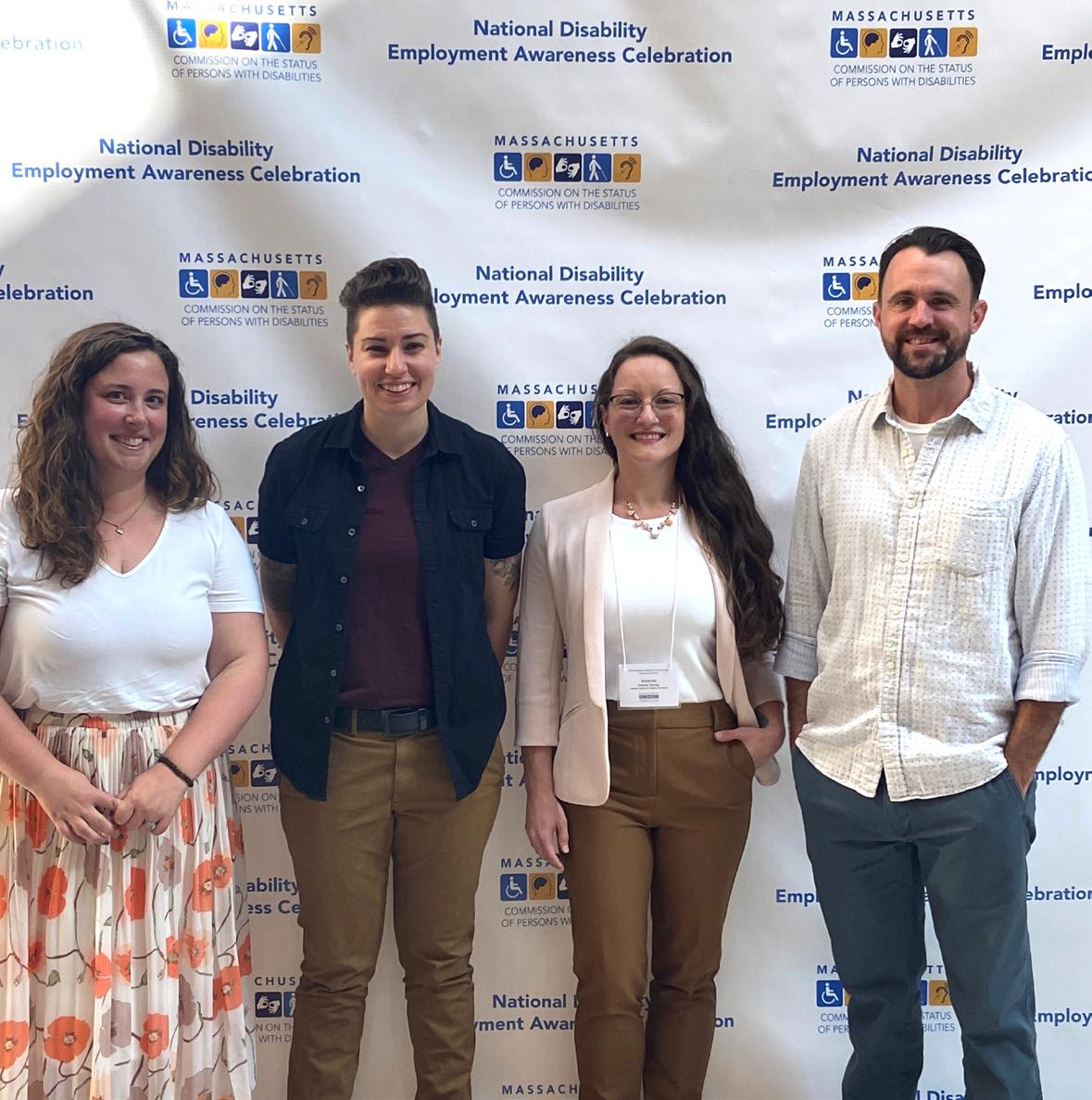
Sometimes all three funding sources come together. When JF&CS identifies a new opportunity to address a compelling need, we might first seek philanthropic support to innovate and refine new services. Once a model is proven, we can then pursue fee-for-service dollars and secure government funds to enable us to scale the work.
Our financial goals over the next five years are intended to enable JF&CS to innovate, offer top-quality services, and provide competitive compensation packages to staff:
• Growing fee-based revenue through increased marketing of fee-for-service offerings to those who can afford to pay for them.
• Expanding our philanthropic base, including exploring an impact campaign and strategies to grow planned giving.
• Negotiating government funding and pursuing complementary grants and contracts to increase government funds over time.
• Keeping overhead costs below 16%, as benchmarked by federal government contracting minimums.




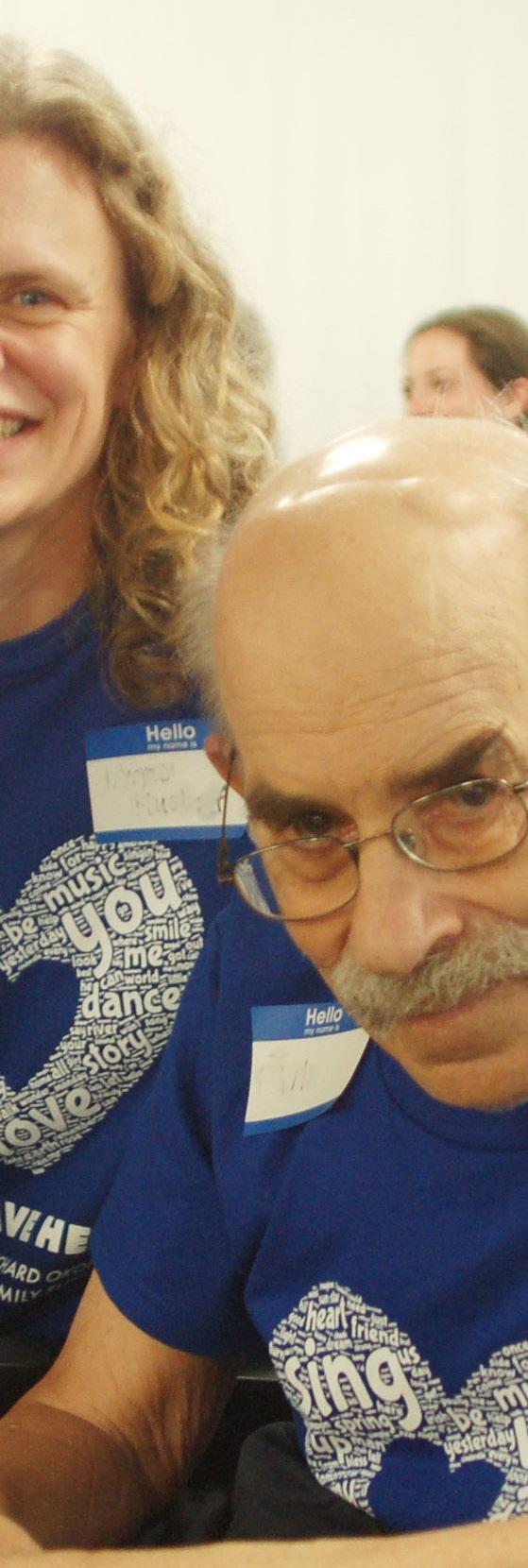

Over the next five years, JF&CS will continue to strengthen our integrated service model, which recognizes the complex interactions among a range of life circumstances. This model enables us to function as a social service hub for the community, providing a starting point for people navigating life’s challenges. Integrated services enable us to operate efficiently, leverage funding effectively, and provide the highest standard of care to our clients.
Within this strategy, we have selected five priority areas to intentionally hone our efforts and guide the high-quality services we provide to our community:

JF&CS will offer expertise, guidance, and partnership to help individuals and families improve their mental health.
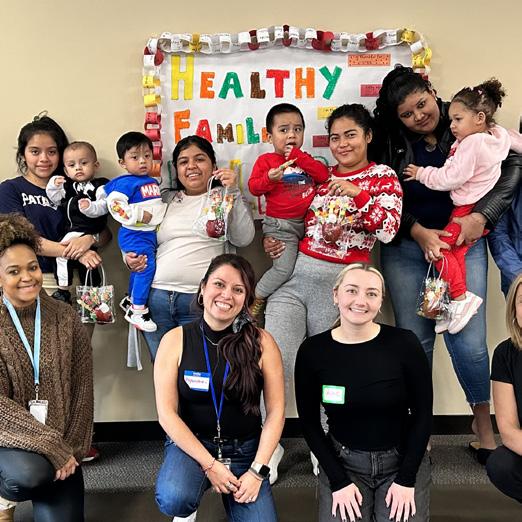
JF&CS will leverage and scale proven work to strengthen positive caregiver relationships that promote healthy child development during the critical early years.
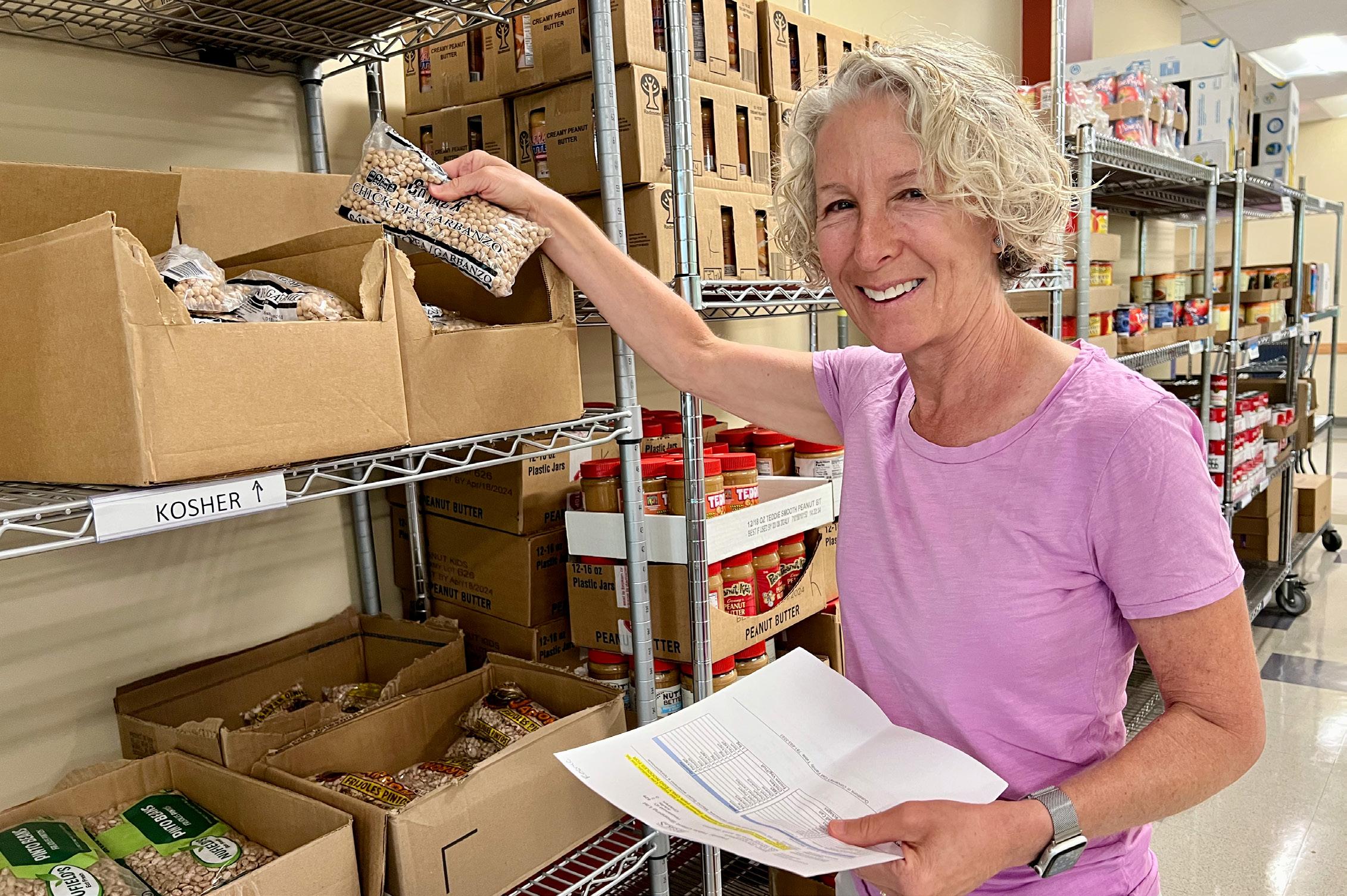
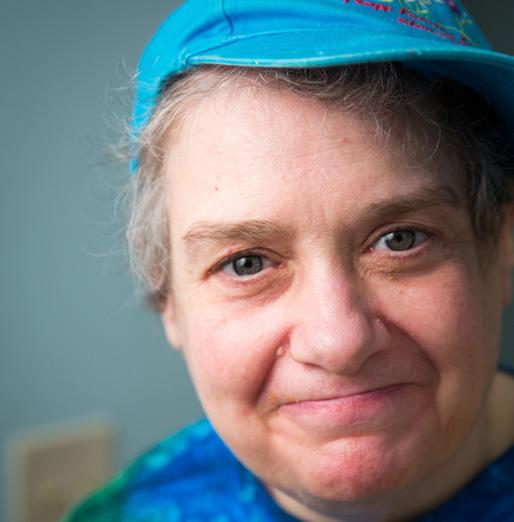
JF&CS will promote independence and community access for people with intellectual and developmental disabilities as a significant number of individuals transition to adult services.
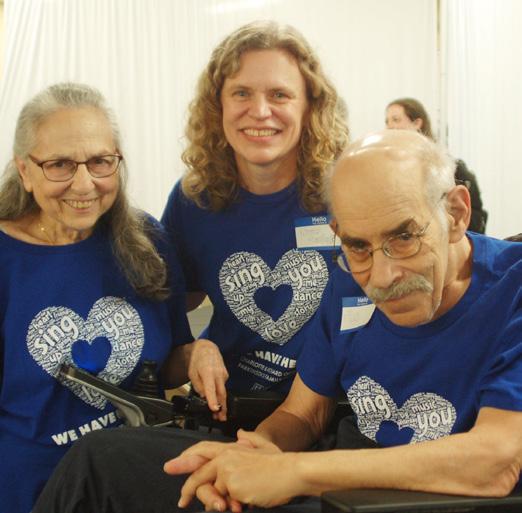
JF&CS will empower individuals to age with dignity by supporting both older adults and their caregivers at a time of unprecedented growth for this population.
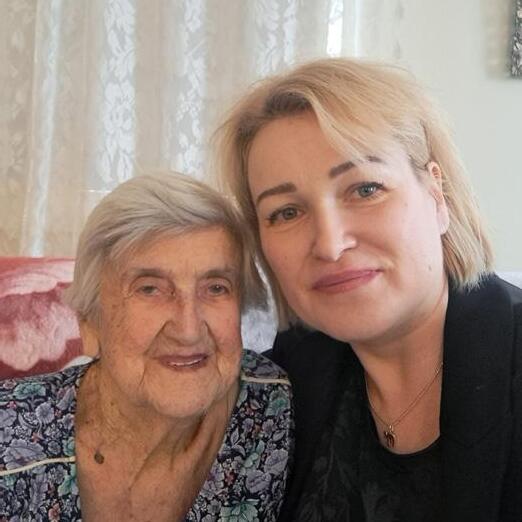
JF&CS will fulfill our unique role of caring for the social service needs of the Jewish community at a time of rising antisemitism, anxiety, and disconnection from traditional institutions.

As in the rest of the country, mental health needs are at an all-time high in Greater Boston. A recent study found that more than one in three Massachusetts adults reported a mental health need for themselves or a close relative. In JF&CS’s conversations with rabbis, Jewish communal leaders, and individual Jewish community members, mental health support is the top social service need expressed.
Individuals and families often struggle to find the right set of resources for their unique mental health challenges. Individual therapy can be incredibly impactful, but it can be difficult to find the right therapist. Additionally, resources beyond traditional one-on-one therapy—such as coaching, peer support groups, group therapy, psychiatry, and selfcare techniques—can make a significant difference. Comments from JF&CS clients underscore the value of partnership around all the interconnected components of mental health support.
JF&CS has deep expertise in mental health, with dozens of social workers and services that help over 3,000 people a year address anxiety, social isolation, postpartum depression, bereavement, persistent mental illness, and many other issues. Approximately seven new people call one of our four helplines every day about a mental health need, amounting to over 1,500 calls per year.
Using our extensive knowledge of the local mental health service landscape, we direct people to the support best suited to their needs. We also provide therapy services in specific areas, for instance, to help young families facing trauma, poverty, and other life complexities. Our track record of innovation in this space is strong. For example, we have developed dual provider models that combine clinical treatment and peer support; support groups across challenging subjects like suicide loss and postpartum depression; and clinical case management in which we address the underlying stressors in the lives of people with mental illness.
At JF&CS, we apply a mental health lens and mental health expertise to all we do, including for services focused on basic needs, disabilities, aging, or parenting. That holistic approach enhances every JF&CS service. Additionally, if a person’s stress stems from a struggle over economic insecurity, social isolation, or child-rearing, staff address the root cause issues as well as the stress itself.
JF&CS
will offer expertise, guidance, and
partnership to help individuals and families address growing mental health needs.

Over the next five years, JF&CS will provide highimpact services to support mental health needs across the lifespan, while also partnering with individuals and families to help them most effectively access additional services as needed.
We will offer coaching, support, and intervention, including to address the stressors that cause and exacerbate mental health challenges. We will build on our highly impactful group support services, particularly in areas where we have a unique
specialization, such as parenting through trauma and bereavement.
We will offer guidance across a continuum of services, including helplines for information and support, expert consultation, and ongoing guidance through the complexities and hurdles families face when trying to access mental health care. This includes supporting people through a web of information and helping them make informed decisions.
“My emotional life, as well as my daily tasks of living, seem to move quickly, back and forth, between manageable and unmanageable. And I never know when I’m going to be struck one way or the other. Gratefully, I am on the other side of many of the problems and issues I used to have, and it is due to JF&CS.”
—Client with persistent mental illness
We will also continue to innovate solutions to mental health needs by piloting new approaches and rigorously examining their impact. JF&CS’s holistic approach, breadth of services, and deep expertise puts us in a unique position to develop new and innovative models. We have several pilots already underway, including our youth mental health consultation and family navigation service, synagogue-based social worker model, and peer-led support groups in Jewish communities.
THESE STRATEGIES WILL CREATE A PROFOUND IMPACT FOR OUR COMMUNITY OVER THE NEXT FIVE YEARS, TO INCLUDE:
NORMALIZING MENTAL HEALTH NEEDS by offering at least 750 support groups per year for people at key life inflection points.
JEWISH COMMUNAL INSTITUTIONS with support and expertise around mental health.
HELPING AT LEAST 1,750 PEOPLE each year navigate mental health needs effectively through referral-focused helplines.
ENABLING PARENTS TO RECOGNIZE AND ADDRESS MENTAL HEALTH NEEDS for their children with both home- and school-based strategies.
live in their communities while navigating life’s stressors.
PILOT PEER-LED SUPPORT GROUP MODELS in a wide range of Jewish communal settings, infusing evidence-based training and clinical support in existing communities.
EXPAND SERVICES
to support parents and caregivers in addressing the mental health of teens and tweens.
EXPLORE POTENTIAL TO OFFER ONGOING, IN-DEPTH CARE MANAGEMENT SERVICES for people with mental illness—combining the strengths of our aging life care management work with our clinical case management.
CONTINUE TO PILOT THE MODEL OF EMBEDDING A SOCIAL WORKER IN SYNAGOGUE COMMUNITIES, evaluating and optimizing the model for maximum impact.
ENHANCE INTERNAL MENTAL HEALTH TRAINING and professional development across JF&CS to embed the mental health lens in all we do, reinforce service excellence, and create opportunities to develop innovations in our work.
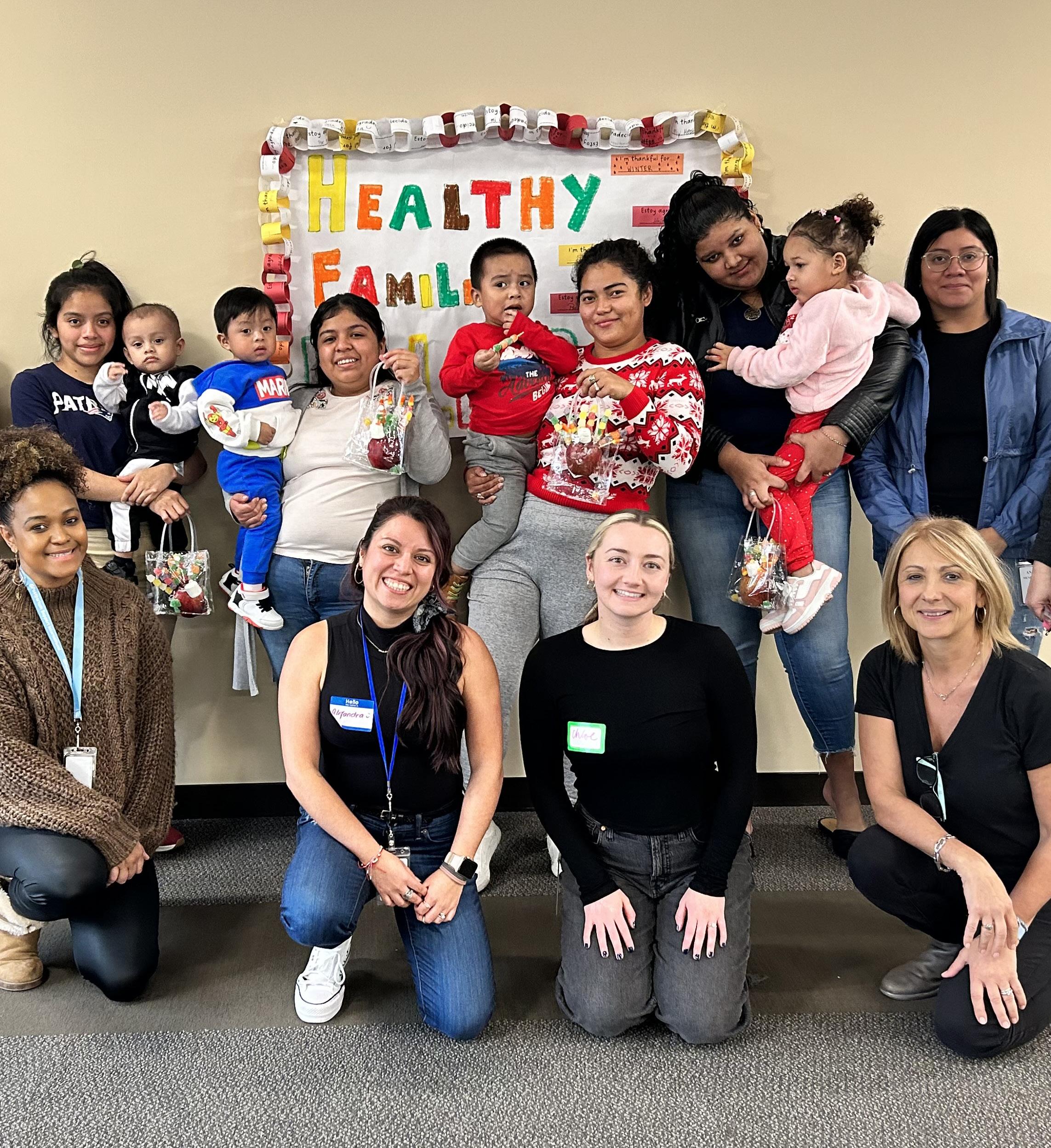
There is perhaps no better investment than in the well-being of our children. Evidence shows that a child’s early experiences, especially in the first five years, set them on a life trajectory that can impact generations to come. Key to these early years is a child’s relationship with parents and caregivers. JF&CS is a longtime leader in services that foster healthy early parent-child relationships, contribute to lifelong resilience and well-being, and reduce the chances of child abuse or neglect. In the last five years, JF&CS has helped over 6,000 families nurture healthy beginnings.
The birth of a new baby is generally considered among the top ten life stressors—combining intense new responsibility with hormonal changes, sleep deprivation, and physical discomfort. Parents’ experiences in raising their children can profoundly impact their children’s development, influencing their mental health and overall well-being.
One in five new mothers suffers from perinatal mood disorder, a topic that has gained significant attention. Therapeutic support can greatly benefit both mothers and their babies, especially for those who have experienced trauma or substance use. Additionally, about 15% of children under five face significant mental health conditions,14 with rates nearly doubling for those in poverty, contributing to multigenerational cycles of trauma.15 These conditions can manifest as aversions to touch, difficulty calming down, or delayed speech, impacting their ability to form friendships and
thrive in school. Services that help caregivers connect with their young children foster positive development and can change life trajectories.
JF&CS’s services make it possible for new parents to build a strong foundation for learning and growth despite multiple challenges. Our clinical, case management, and home visiting services provide particular impact to children born prematurely, with medical complexities, or exposed to substances, as well as to parents who experience poverty, postpartum depression, and/or a history of trauma, abuse, or mental illness.
JF&CS plays a unique statewide leadership role specifically in the mental health arena around the early parent-child relationship. At this moment, when mental health needs in the country are at the forefront, a focus on the early years can have enormous long-term impact.
JF&CS will leverage and scale proven work to strengthen positive parent-child relationships that promote healthy child development during the critical early years.

Over the next five years, JF&CS will embark on a twofold strategy to set children on a positive life trajectory: We will focus on individual work with new parents/caregivers and their children, and we will also embed our expertise and proven models in preschools and social service organizations to scale our impact.
To support individual parents and caregivers and their young children, we will offer services to help build bonds that form the core of healthy childhood
“I am so grateful I had the
group
when I was
experiencing postpartum depression.
I was
very shocked to have it with my second child because I didn’t have it with my first. I felt very lost until I found the group. Thank you for all you did for me and the other women.” —Support group participant
development. These services will include support groups, one-on-one visitation and parenting support, and proven therapeutic models that match parents with the type and level of support appropriate to their needs. We will also help families address critical issues like housing, food, and childcare. Our model will combine support from clinical professionals, family support staff, peers, and closely supervised volunteers to help families through complex situations, while acknowledging that all parents and children can benefit from some level of support.
To scale our work and change the long-term trajectories of many more children’s lives, we will embed our expertise into partner daycare centers and preschools, especially those serving children at the highest risk in communities impacted by poverty. We will include intensive training plus ongoing support, with the latter decreasing gradually as on-site childcare staff build their knowledge, skills, and confidence.
THESE STRATEGIES WILL CREATE A PROFOUND IMPACT FOR OUR COMMUNITY OVER THE NEXT FIVE YEARS, TO INCLUDE:
of at least 5,000 adults to enhance the life trajectories of their children.
who will impact 2,000 children annually.
across Massachusetts through partnerships to help develop the workforces of 10 community-based organizations through training and consultation.
alleviating stressors and strengthening their ability to provide emotional support to their children.
FURTHER INTEGRATE SERVICES and improve the intake process across the full range of therapeutic and family support models to efficiently match parents with JF&CS resources.
EXPLORE EXPANSION OF LAUREN & MARK RUBIN VISITING MOMS through partnerships with community-based organizations that can attract diverse prospective volunteers.
INCREASE OUTREACH AND EXPANSION WORK IN PRESCHOOLS, especially in high-risk areas, and explore opportunities for greater scale through government or community partnerships.
INCREASE PARENTING OUTREACH AND EDUCATION in the Jewish community.
ENHANCE SERVICES TO THE WALTHAM COMMUNITY through outreach for direct service plus support to community organizations.
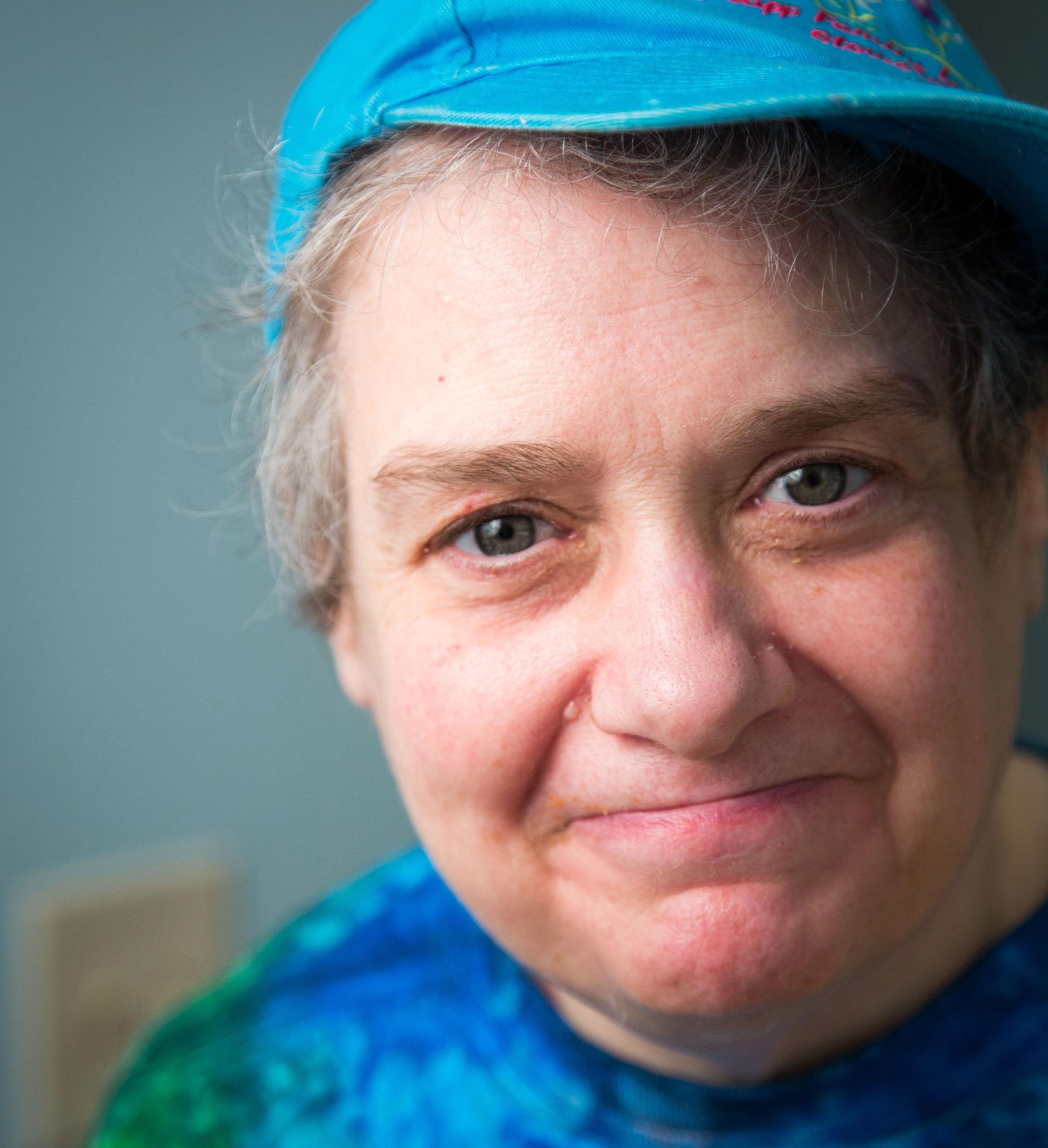
We know that for thousands of families, caring for a loved one with a disability brings much joy, but it can also generate stress. Often, people with disabilities feel these same emotions.
JF&CS works to embrace this joy and alleviate stress through our services advancing independence for people with intellectual and developmental disabilities.
The need for services that support this population is growing. Over 200,000 people in Massachusetts have a developmental disability.16 A record number of children with intellectual disabilities are turning 22 years old. This number has doubled in the past decade, driven by the tremendous increase in the number of children diagnosed with autism.17 As these individuals age out of the education system, they face incredible challenges finding the support and opportunities they need to live productive adult lives.
JF&CS supports children and adults with intellectual and developmental disabilities, including autism spectrum disorder, so they can live meaningful lives. We recently received a near-perfect score for our services in an independent assessment by the
Commonwealth of Massachusetts. We provide a broad range of services in this area, including a place to live; a way to spend meaningful days, whether at a job, by volunteering, or through education; a community; and, for some, a connection to Jewish traditions. We also help parents and their children navigate public benefits, advocate for special education resources, and plan for the future. All within one organization, under one roof, JF&CS clients can access all the elements of a full life.
JF&CS will promote independence and community access for people with intellectual and developmental disabilities as a significant number of individuals transition to adult services.

Over the next five years, JF&CS will focus on providing high quality, person-centered services to people with disabilities. These services will include community living, skill building, employment, and socialization, integrating a continuum of support to enable clients to gain independence over time. To support these efforts, we will provide training and opportunities to recruit and retain top talent in a field known for high turnover and burnout.
We will emphasize growing our services for semi-independent individuals, with a focus on building vocational and life skills while fostering
community connections. Our approach will include supportive living programs that empower individuals to thrive in semi-independent apartments, along with coaching for competitive employment, socialization, and the routines of daily life. By integrating these elements, we aim to help people grow, engage with their communities, and achieve their full potential.
“We would like to take this opportunity to thank you and your staff for all your efforts to encourage and support our daughter this past year. Luckily for us, there was a space available for her in JF&CS housing when we needed it most. We felt very secure knowing that she was in a place where she was getting the help she needed to learn to better navigate her world.” —Parents of a client with disabilities
We will also support families in navigating resources and planning through critical life stages, most notably the school years, the transition out of school-based support at age 22, and the older years. Expanding this work will require increased outreach and marketing capacity so people know JF&CS is an expert resource they can turn to when in need.
Finally, we will create spaces in the Jewish community where people have opportunities to interact with and change their perceptions of people with disabilities. Showcasing our CHAI Works Day Program in our Waltham headquarters offers a starting point for this work; other elements include increasing volunteer opportunities and building more partnerships across the community.
THESE STRATEGIES WILL CREATE A PROFOUND IMPACT FOR OUR COMMUNITY OVER THE NEXT FIVE YEARS, TO INCLUDE:
ENABLING 2,400 PEOPLE with intellectual and developmental disabilities to live with dignity, with the most appropriate living scenarios, day programs, and employment.
ITS ENGAGEMENT with and commitment to individuals with disabilities.
OFFERING INDIVIDUALS WITH AUTISM AND OTHER DISABILITIES
a path toward independent living, with customized support to address personal goals and needs.
in our residential and day programs to promote strong relationships between families and programs, consistently resulting in over 90% satisfaction scores.
helping at least 100 families access both case management services and state-funded financial supports to keep their loved ones at home, with a further growth trajectory of at least 7% per year.
INTEGRATE SERVICES
to create a streamlined experience for community living, skill building, employment, and socialization services for people with intellectual and developmental disabilities who choose to live in the community.
to enable more families to successfully advocate for and plan for both school support and life transitions.
to enable more participation in day programs, semi-independent housing, and coaching, particularly targeted at adults over age 22.
RECRUITMENT, TRAINING, STAFF DEVELOPMENT, AND CAREER OPPORTUNITIES
to attract and retain top talent and enhance skills around client care and family connections.
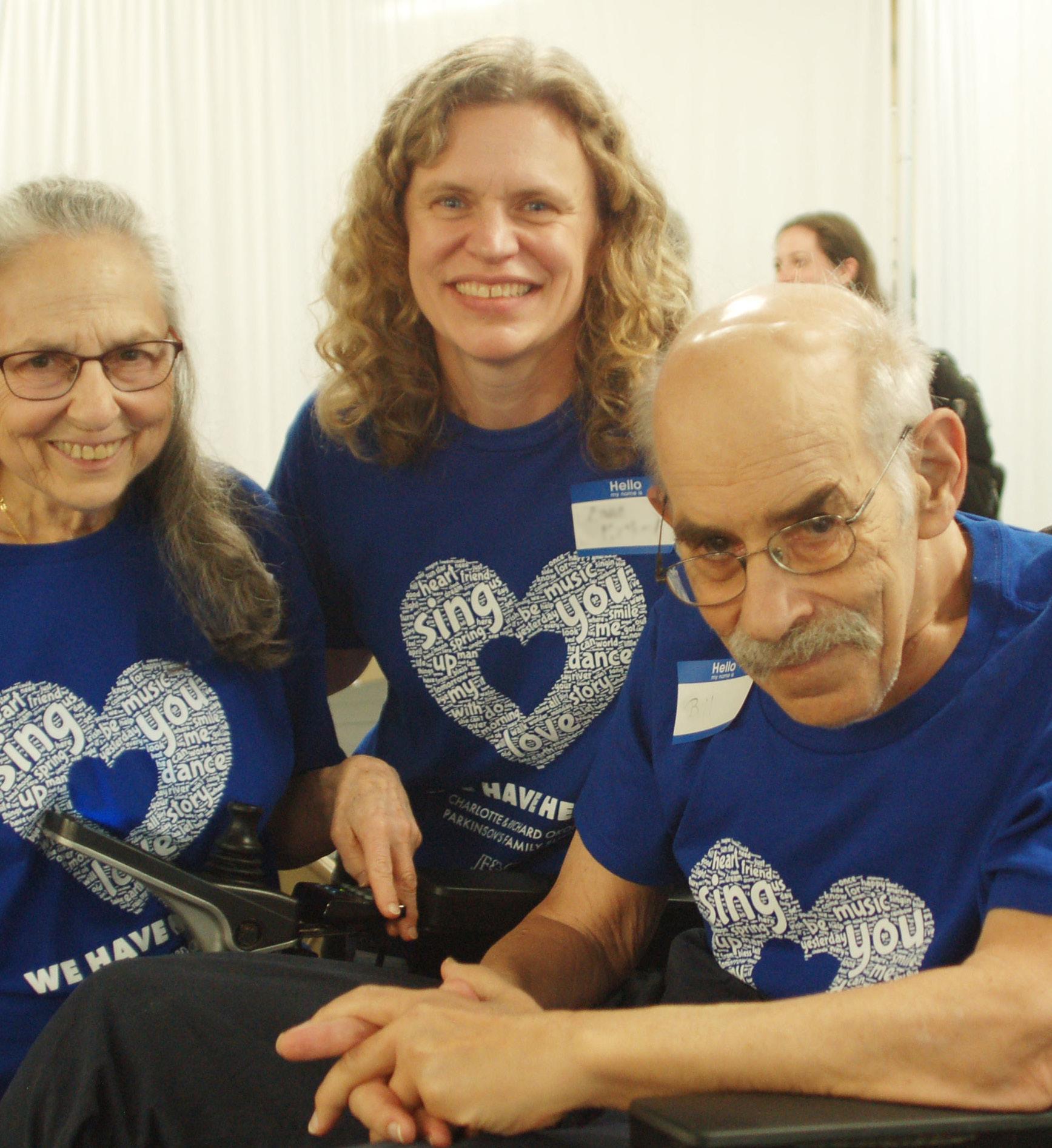
We all hope to live with dignity in our later years. Yet in time, many older adults face limited abilities, are forced to contend with difficult medical diagnoses, and see loved ones take on time-consuming caregiving roles.
JF&CS is a statewide leader in supporting older adults and their families through the challenges of aging.
The number of people needing this kind of support has grown significantly. Over 1.2 million people age 65+ live in the Commonwealth of Massachusetts, and by 2030, one out of every five Americans will be over 65. More than a quarter of people over age 80 will develop a neurodegenerative disease like Alzheimer’s or Parkinson’s disease, diminishing their ability to live independently.18 About 60% of older adults will eventually need some form of long-term care, which will take place mostly in the home or in the community.19 Already about 42 million people—or 17% of all adults over the age of 18—provide unpaid care to an individual age 50 or older.20
Each year JF&CS receives over 800 calls to SeniorDirect, the helpline through which we provide people with guidance through the transitions of aging while gathering data on the needs of older adults and their caregivers. SeniorDirect callers reflect a cross section of the community, with many searching for social connection in addition to practical guidance. JF&CS’s services span the gamut of needs. Our aging life care managers support older adults and their families to navigate medical care, finances, housing, family relationships, legal decision-making, and more. In addition, we offer support groups, arts-based therapy, guardianship, and community education.
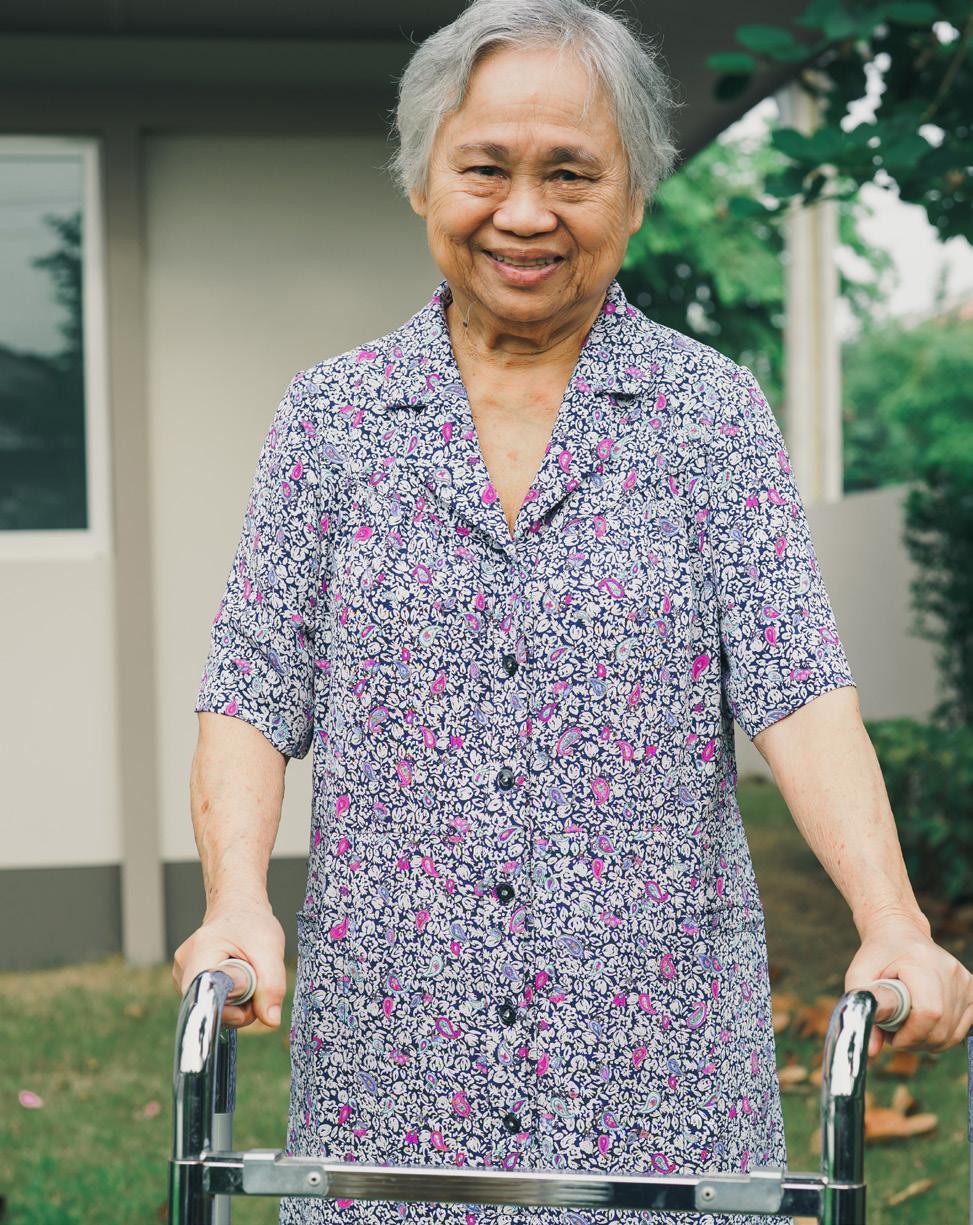
JF&CS will empower individuals to age with dignity by supporting both older adults and their caregivers at a time of unprecedented growth for this population.
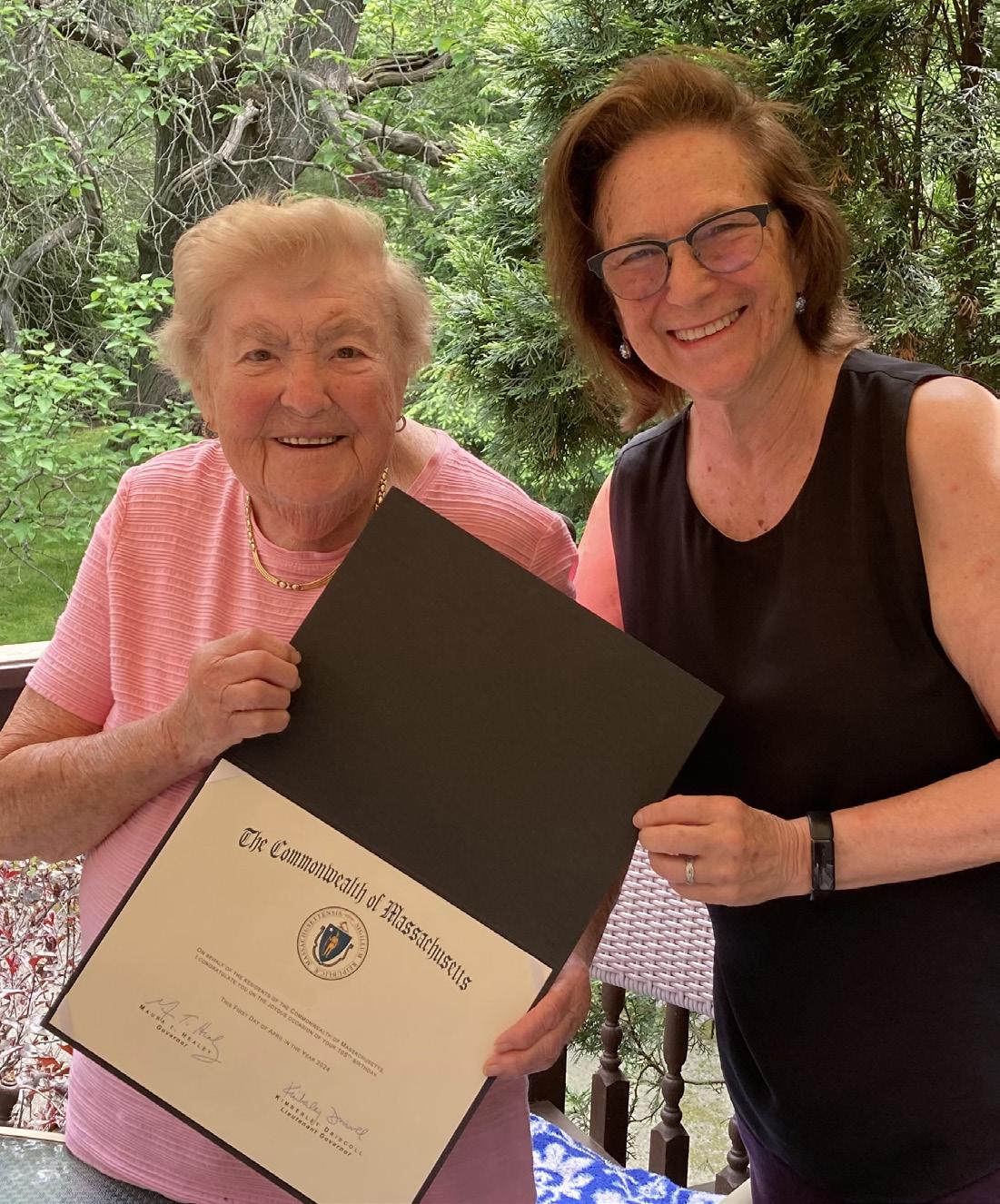
Over the next five years, JF&CS will focus on enabling older adults to age with dignity, in their homes and in our community. We will provide in-depth expertise, guidance, and support to enhance the quality of life for older adults and family members navigating the challenges of aging, including people who do not have family support.
We will expand and tailor our fee-based services to address a range of needs and financial circumstances. Some people will require only one-time guidance. Others will need ongoing help
managing proper home and health care, finding viable living options, and communicating with family members.
We will also pilot programs to coach caregivers, educating them about effective ways to care for older adults as they age. The responsibilities of caregiving are too often underappreciated and under-resourced. These programs will improve the lives of older adults in our community while also supporting their caregivers.
“When I was a Visiting Mom volunteer, I wasn’t having any more children so I knew I wouldn’t need its services. I volunteered at Family Table and I thought I would never be hungry. But there came a time when I needed JF&CS. My husband was diagnosed with Alzheimer’s disease. We went to the JF&CS Memory Café every month. It was a room full of people who should not have had much hope. There’s no cure for this disease. But for 90 minutes, we were all humans, enjoying the art and music.”
—Longtime volunteer, donor, and client
Finally, we will scale proven approaches to supporting aging and reducing isolation, especially for those living with neurodegenerative diseases. We will partner with local organizations that work with underserved communities, sharing our expertise as part of our commitment to caring for people who lack access to support. Through collaboration, we can reach thousands more people.
THESE STRATEGIES WILL CREATE A PROFOUND IMPACT FOR OUR COMMUNITY OVER THE NEXT FIVE YEARS, TO INCLUDE:
SUPPORTING AT LEAST 500 CAREGIVERS to more effectively and confidently care for their aging family members.
THAT MORE THAN 5,000 INDIVIDUALS AND FAMILIES have guidance to navigate aging with dignity.
HELPING THE JEWISH COMMUNITY EMBRACE AND RESPECT THE AGING PROCESS as people experience life transitions.
CONNECTIONS, SUPPORTIVE GROUP ACTIVITIES, AND COMMUNITY for at least 1,400 individuals who have felt isolated due to age, illness, or caregiving responsibilities.
BUILD A ROBUST OUTREACH AND MARKETING APPROACH to expand tailored aging life care management.
DEVELOP A PILOT PROGRAM to educate family caregivers of older adults.
ADDRESS SOCIAL ISOLATION OF OLDER ADULTS IN THE JEWISH COMMUNITY, expanding visitation, support groups, and synagogue education programs.
PARTNER WITH WALTHAM AGING ORGANIZATIONS to share expertise, promote JF&CS services, and support older adults.
DOCUMENT AND EMBED OUR GROUNDBREAKING APPROACHES TO NEURODEGENERATIVE DISEASES, such as nationwide Memory Cafés, in more communities across Greater Boston and beyond.
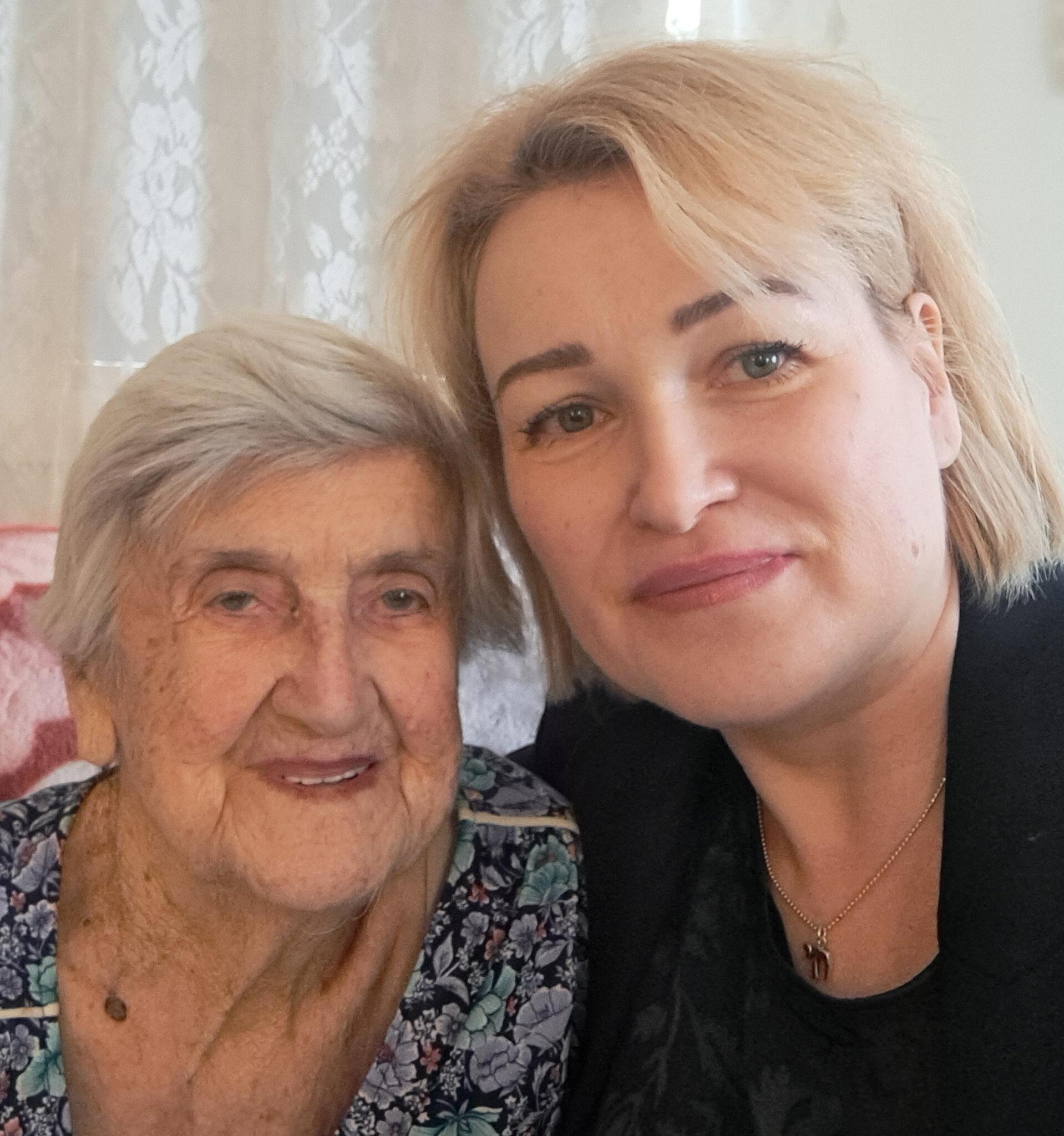
JF&CS has served the Jewish community since our founding over 160 years ago. In our early days, community leaders met to distribute $2 a week to Jewish families in need.
While JF&CS has evolved into an organization that is respected for serving people of all faiths, we have not lost sight of our role in caring for the Jewish community.
The myth that poverty does not exist in the Jewish community is among the most pervasive, and one that we actively seek to dispel. We serve hundreds of Jewish people in poverty each year, working to prevent homelessness and ensure that people’s basic needs are met. Recent research from the Jewish Federations of North America shows that almost 20% of Jewish households in the United States struggle to make ends meet. Over 10% of Jewish households fall below 250% of the federal poverty line, which amounts to $62,150 for a family of three. More than a third of Holocaust survivors in the United States live below the poverty line.21 We see this reality reflected in demand for our Family Table food pantry, which now serves nearly 700 families each month, up from 500 three years ago. Over 80% of Family Table clients are Jewish.
Some elements of caring for the Jewish community are expected to be particularly intense over the next five years. Contrary to popular belief, the need for care for Holocaust survivors is growing. These survivors, now mostly in their 90s and beyond, have needs that increase dramatically as they age. JF&CS currently provides services to more than 400 Holocaust survivors, a number that has nearly tripled in the last 10 years. In the last year alone, financial assistance to survivors increased by a third.
Mental health needs, including those relating to specifically Jewish concerns, are also significant. For several years, Jewish communal leaders in Greater Boston have named mental health support as a top social service. The war in the Middle East has exacerbated that need. A recent Pew Center study showed that the vast majority of American Jews are feeling some combination of sadness, anger, exhaustion, and fear in response to the war, and threequarters are experiencing at least three of those four strong emotions.22 Data from JF&CS’s own work are similar: Calls to our Mental Health Connect helpline doubled in the month after the October 7 attack, and we continue to see increased need for emotional support in the Jewish community.
JF&CS weaves our care for the Jewish community into all our work, such as operating a kosher food pantry, organizing Jewish holiday celebrations in group homes for adults with disabilities, and offering culturally sensitive services to Jewish survivors of domestic violence. In addition, we apply a Jewish lens to challenging issues such as mental health, domestic violence, disabilities, poverty, parenting, and substance use. By creating a visible Jewish presence in these areas, we destigmatize areas of need, promote acceptance, and create an environment in which all members of the Jewish community can feel cared for and embraced.
JF&CS will fulfill our unique role of caring for the social service needs of the Jewish community at a time of rising antisemitism, anxiety, and disconnection from traditional institutions.
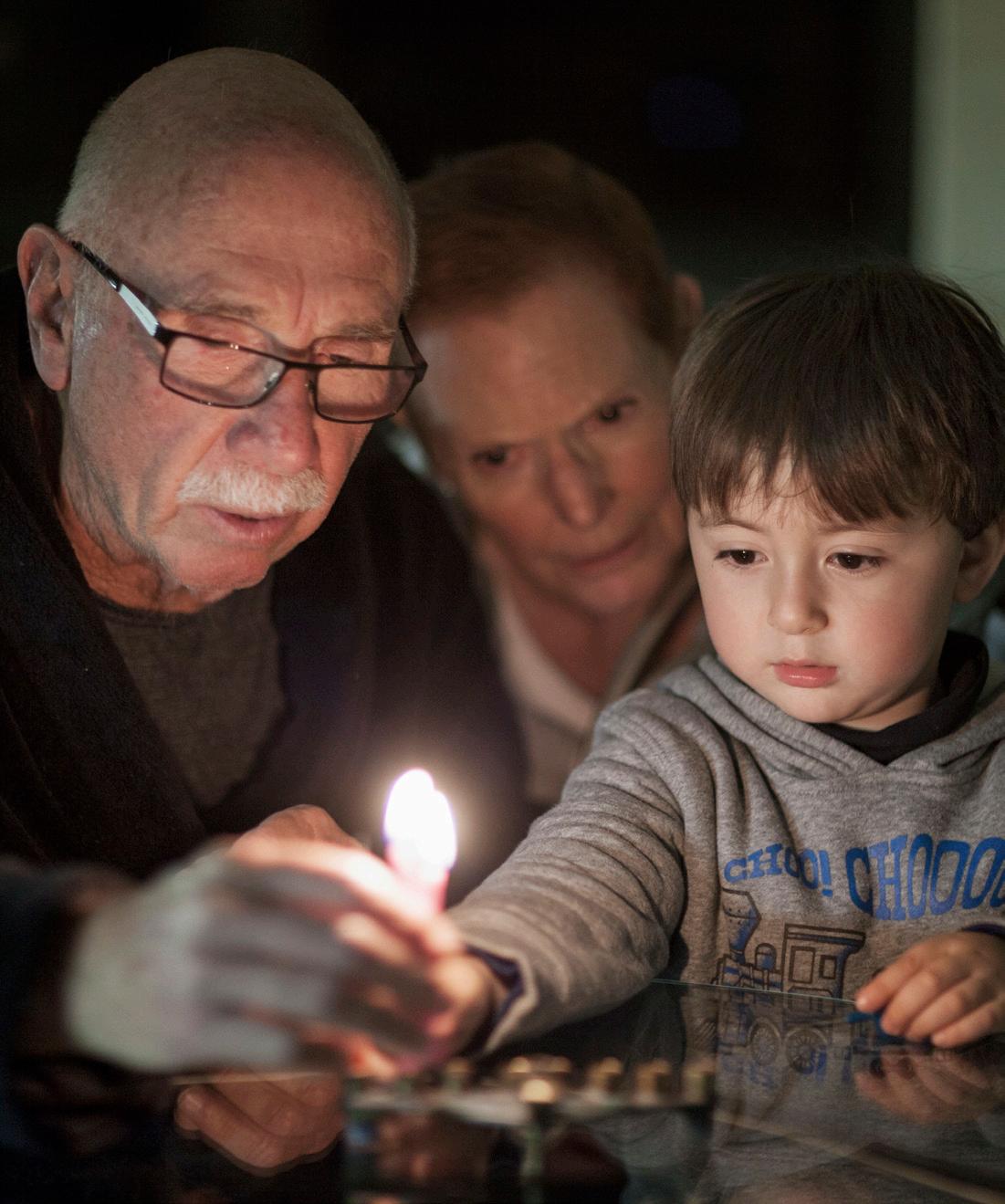
Over the next five years, JF&CS will strengthen our work to support the Jewish community. Our goal is for our community to know we are here when need arises, and we are also a means to help care for others.
We will increase our outreach to the Jewish community through partnerships with synagogues and other Jewish organizations, including schools, community centers, retirement communities, and social organizations. In addition, we will hone a clear message to unaffiliated Jews that JF&CS is a welcoming environment.
We will address unique Jewish social service needs. We will enable all Jews—including those with
disabilities, mental health challenges, or limited incomes— to live with dignity by providing kosher food, Jewish connections, and culturally sensitive services. This includes special attention to the unique needs of aging Holocaust survivors as well as to Jewish survivors of domestic violence. We will address end-of-life planning, grief, and emotional healing from a Jewish framework. We will also help the Jewish community build resiliency and mental wellness in the face of antisemitism, and support individuals in forging connections with others experiencing the same challenges.
“It’s like a security net being there for the community if needed. I was a person in need when my son was sick and I was struggling financially. JF&CS was there to answer my questions for help and support.”
—Former client
We will serve as a trusted resource to rabbis, synagogue communities, and other organizations, guiding them to resources for mental health support, domestic violence, benefits navigation, aging, and the many other areas of JF&CS services.
We will help people live out their Jewish values, and pass them on to the next generation, by offering meaningful volunteer opportunities. For some people, visiting weekly with a Holocaust survivor or taking their child to deliver kosher groceries to someone living with food insecurity will be how they feel most Jewish in their lives. Offering these opportunities not only helps those in need but also helps all of us create a multi-generational community committed to chessed (loving-kindness) and tikkun olam (repairing the world).
THESE STRATEGIES WILL CREATE A PROFOUND IMPACT FOR OUR COMMUNITY OVER THE NEXT FIVE YEARS, TO INCLUDE:
OF OUR SERVICES within the Jewish community, so people feel connected to a caring community and know where to turn for social service needs.
and Jewish communal organizations with social service resources and connections to meet the wide-ranging needs of their communities.
in need with emotional, logistical, and financial support as they age, including providing more than $4.5 million in financial aid and assistance each year.
preventing homelessness, securing public benefits and/or emergency financial assistance, and increasing food security by providing healthy kosher food to 800 households each month, and leveraging $2.5M in government food benefits over five years.
4,000
and building long-term commitment to improving the world, growing our connection to the Jewish values of chessed (loving-kindness) and tikkun olam (repairing the world).
BUILD STRONGER CONNECTIONS TO SYNAGOGUES and other organized Jewish communities through direct outreach, expanded marketing, and an embedded social worker in some synagogue communities.
CREATE FAMILY TABLE CONNECT PROGRAM to combine social connection with food delivery.
EXPAND SERVICES FOR HOLOCAUST SURVIVORS, building staffing model to provide increased case management and home care services.
PILOT PROGRAM OF CLINICALLY SUPERVISED PEER-LED SUPPORT GROUPS for the Jewish community.
BUILD JEWISH COMMUNAL AWARENESS OF JF&CS’S SUPPORTS FOR ECONOMIC STABILITY and explore innovative solutions to promote income and savings.

JF&CS’s integrated service model is built on a cross-organizational foundation that supports our staff, our operations, and our connection to the community. In the next five years, we have identified priorities in four areas: people, technology and evaluation, marketing and communications, and physical spaces.
Clients and community members frequently express that the 250+ staff members at JF&CS are not only experienced and competent but also warm and resourceful, blending deep expertise with a genuine commitment to care. Many staff have been with JF&CS for over 10 years, citing JF&CS’s collaborative, qualityfocused, and meaningful work as key to their longevity.
The initiatives in this plan depend on our staff. To support our commitment to excellence, we will focus on staff development, recruitment, and compensation. While JF&CS has made a large investment in organization-wide salary equity in recent years, we must continue to make ourselves attractive to top-notch employees through competitive compensation.
Training and professional development, both in direct work with clients and across all JF&CS services, is also essential. This includes skills training in areas like trauma care and working with families, as well as training in management competencies like hiring and giving feedback. It also includes the development of best practices in order to support the diverse clients we serve as well as our diverse employee base. We will continue to build communication, collaboration, and shared leadership among the teams that work to integrate our services.
JF&CS STAFF
JF&CS’s service integration relies on technology integration. In recent years, we have invested in a robust data system that allows us to document client needs, activities, and processes; measure our impact; and report on results.
As we innovate, we must advance our technology to support our progress, including by building our analytics discipline to drive more highly informed decision-making. Data that demonstrate our impact are also essential in making our case to funders and government sponsors.
“I want to emphasize how responsive and flexible the staff is. This is a wonderful staff. They are very open; they are seeking education for themselves. The staff advocates for my son. They’re not only serving him, but they are also very good at working together.”
—Mother of adult client with disabilities
Technology is an indispensable tool for staff, and while it can create significant efficiencies, it must also be protected from cyberattacks. Accomplishing this requires ongoing attention to our systems: Our behindthe-scenes security and maintenance work will grow as we grow.
Many people in our community are unaware of the breadth of services JF&CS provides. It is essential that we expand our marketing and communication efforts to address this awareness gap. In doing so, we will also feature our paid services, which will allow us to maximize our financial resources.
Our focus areas will include a combination of core marketing and communications tactics such as email marketing, public relations, and social media. We will augment this work with direct in-person outreach targeted to specific populations, such as older adults who could benefit from aging life care management services, parents of children with disabilities who will one day need transitional support services, and synagogue leaders who have a wide impact on the Jewish community.
Our goal is that when a person in our community confronts a challenge, they know that they can turn to JF&CS.
With gratitude to donors, JF&CS owns our Waltham headquarters building. The hybrid environment presents us with an opportunity to optimize our physical space both to enhance productivity and to generate rental revenue from like-minded organizations. In our hybrid world, prioritizing spaces for in-person collaboration and virtual client visits rather than larger individual workstations could let us work more effectively within a smaller footprint. In turn, renting space to partner organizations would offer financial benefits while enhancing cooperation across the social service ecosystem.
THESE CROSS-ORGANIZATIONAL ACTIVITIES WILL ENHANCE OUR EFFECTIVENESS IN SERVING THE COMMUNITY OVER THE NEXT FIVE YEARS, TO INCLUDE:
Talent viewing JF&CS as a preferred employer that offers competitive salaries, training and development opportunities, and AN EXCELLENT CULTURE.
Continual honing of services through IMPROVED TECHNOLOGY PLUS INCREASED FUNDING in response to our use of data.
The community thinking of JF&CS as the first place to call when in need, resulting in a 15% INCREASE IN CALLS TO HELPLINES AND A 25% INCREASE IN PAID SERVICES.

IDENTIFY AND ENHANCE STAFF DEVELOPMENT OPPORTUNITIES, particularly related to management training and leadership skills.
UPGRADE TECHNOLOGY TOOLS for sharing information to increase efficiency.
INCREASE MARKETING
and activity to build awareness of JF&CS services.
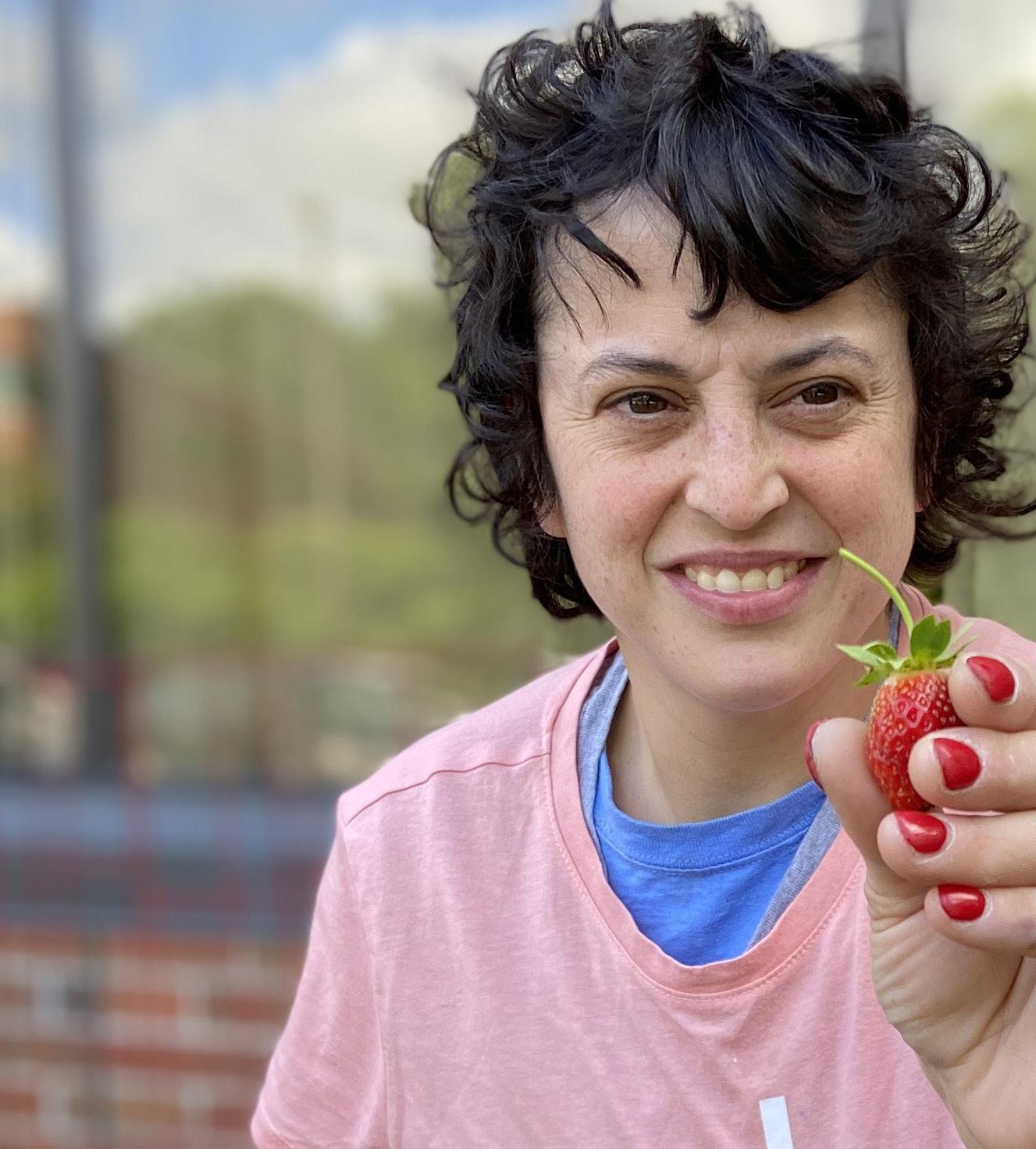
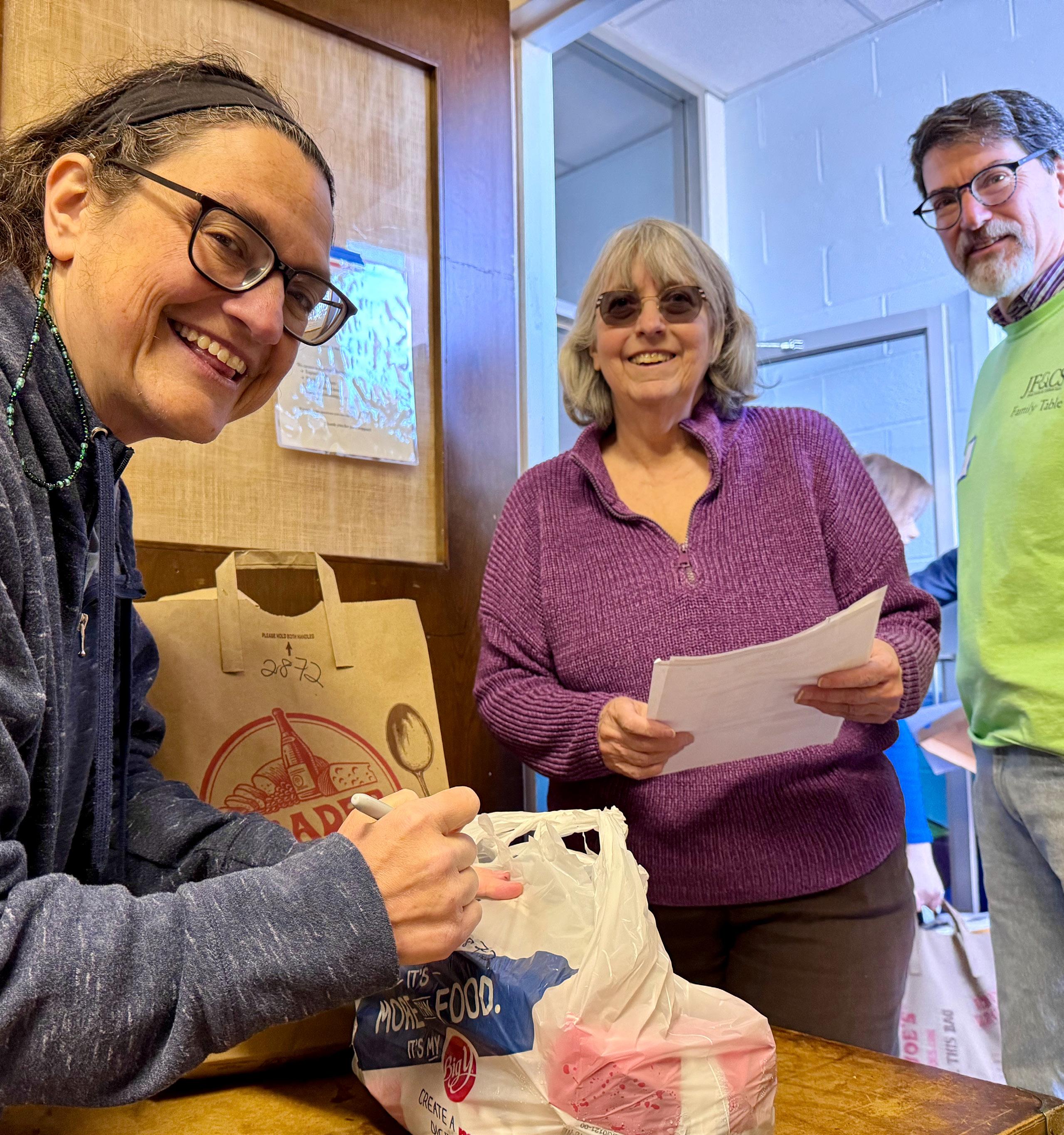
Today’s demographic and societal shifts are combining to create profound communal need. The Jewish values upon which JF&CS was founded—compassion, justice, charity, welcoming the stranger, and improving the world—have never been more important.
By focusing on the strategic priorities defined in this plan, and building on our foundation of expertise, integration, and innovation, JF&CS can continue to grow and to make an even bigger community-wide impact. Together, we will create a community where people are able to get the help they need, when they need it, and with compassion and dignity, all under one roof. In doing so, we will empower thousands of individuals to move from vulnerability to strength.
We are grateful for the hundreds of community members, staff, and social service experts who have participated in creating this roadmap for integrated services and look forward to helping our community to thrive. We invite everyone to join us in realizing our vision for a caring community.
I recently found out there is a member of our local community who is going through an extremely difficult time. She is trying to raise two children, including a new infant, on her own, without access to financial support. A group of us have banded together to help her but were not sure how to obtain resources. The service, attention, information, and care this woman and I received from JF&CS was exceptional. The sincerity and care came through so strongly and made me feel that we were on the right track in getting this woman the help she needs. I am proud to know that the Jewish community is there to help people regardless of their background.
— Community member, Lynnfield, MA
1 “Report: Mass. has the 2nd highest cost of living in the US,” July 16, 2024, https://www.boston.com/real-estate/ real-estate/2024/07/16/massachusettsranked-2nd-highest-cost-living/.
2 “Income Inequality Has Grown in Massachusetts,” Center on Budget and Policy Priorities, https://www.cbpp. org/sites/default/files/atoms/files/ Massachusetts.pdf.
3 “Study: Nearly 20% of Jewish Households Struggle to Make Ends Meet,” Jewish Federations of North America, May 22, 2024.
4 “Behavioral Health During the First Year of the COVID-19 Pandemic: An Update on Need and Access in Massachusetts 2020/2021,” The Blue Cross Blue Shield of Massachusetts Foundation, February 8, 2022.
5 U.S. Teen Girls Experiencing Increased Sadness and Violence, CDC, Press Release, February 13, 2023, https://www.cdc.gov/ media/releases/2023/p0213-yrbs.html.
6 “Launch of the WHO Guide for Integration of Perinatal Mental Health in Maternal and Child Health Services,” World Health Organization, September 19, 2022.
7 “Massachusetts’ Long Waits for Mental Health Care: Children and ER Visits,” WBUR, June 22, 2021, https://www.wbur. org/news/2021/06/22/massachusettslong-waits-mental-health-children-er-visits.
8 “Young Adults with Autism and Developmental Disabilities: Services in Massachusetts,” CBS News Boston, June 7, 2023, https://www.cbsnews.com/ boston/news/iteam-young-adults-autismdevelopmental-disabilities-servicesmassachusetts/.
9 Martin Finucane and Daigo Fugiwara, “Following a National Trend, Mass. Got a Little Bit Grayer in 2022,” The Boston Globe, Updated June 23, 2023.
10 “Healthy Aging Data Report: Highlights from Massachusetts,” UMass Boston Gerontology Institute, John W. McCormack Graduate School of Policy and Global Studies, 2018, https://mahealthyagingcollaborative.org/ wp-content/uploads/2018/12/MA_ Healthy_Aging_Highlights_2018.pdf.
11 Laura Silver, Becka A. Alper, Scott Keeter, Jordan Lippert, and Besheer Mohamed, “Majority in U.S. Say Israel Has Valid Reasons for Fighting; Fewer Say the Same About Hamas: 4. Emotions, News and Knowledge About the Israel-Hamas War,” Pew Research Center, March 21, 2024.
12 “Jewish Americans in 2020: 3. Jewish Practices and Customs,” Pew Research Center, May 11, 2021.
13 Community Health Needs Assessment, Charles River Community Health, October 2021, https://www.charlesriverhealth.org/ wp-content/uploads/2023/08/CRCHNeeds-Assessment-10.21.pdf.
14 “Establishing a Level Foundation for Life: Mental Health Begins in Early Childhood,” Harvard University Center on the Developing Child, 2012, https:// developingchild.harvard.edu/wp-content/ uploads/2008/05/Establishing-a-LevelFoundation-for-Life-Mental-Health-Begins-inEarly-Childhood.pdf.
15 “A Lifespan Approach to Mental Health Promotion: Healthy Early Years,” PubMed, 2010, https://pubmed.ncbi.nlm.nih. gov/20331669/.
16 “Introduction to the 70th Anniversary: Timeline,” The Arc of Massachusetts, https://thearcofmass.org/70history/.
17 “Thousands of Mass. Children Diagnosed with Autism Are Becoming Adults. Many Families Find the State Unprepared to Help,” The Boston Globe, December 29, 2023, https://www.bostonglobe. com/2023/12/29/metro/massachusettsadults-autism/.
18 National Institutes of Health, “One in Seven Americans Age 71 and Older Has Some Type of Dementia, NIH-Funded Study Estimates,” October 30, 2007, https://www.nih.gov/ news-events/news-releases/one-sevenamericans-age-71-older-has-some-typedementia-nih-funded-study-estimates.
19 U.S. Administration for Community Living, January 4, 2021, https://acl.gov/ltc.
20 “Caregiving in the United States: Full Report,” AARP, May 2020, https://www.aarp. org/content/dam/aarp/ppi/2020/05/ full-report-caregiving-in-the-united-states. doi.10.26419-2Fppi.00103.001.pdf.
21 “Jewish Survivors in the U.S.: Report,” Claims Conference, March 25, 2014, https://www.claimscon.org/wp-content/ uploads/2011/10/Jewish-Survivors-USA_ v2-_3_25_14.pdf.
22 Pew Research Center, “Emotions, News and Knowledge About the Israel-Hamas War,” March 21, 2024, https://www.pewresearch. org/2024/03/21/emotions-newsand-knowledge-about-the-israel-hamaswar/#sadness-anger-exhaustion-and-fear.
With gratitude we acknowledge the hundreds of community members who participated in creating this strategic plan through surveys, focus groups, one-on-one interviews, and feedback.
We acknowledge especially the following community members for their leadership in crafting the plan:
Steven Weil, President*
Susan Abraham, Strategic Planning Committee Chair*
Andrew Pearlstein, Immediate Past President
Robin Gross, Vice President*
Alexandra Rand Simes, Vice President*
Lewis J. Pearlson, Treasurer*
Kimberly Creem, Clerk
Hedy Adler
Matthew Appelstein
Stephen Bernstein
Michelle Black
Shari Cashman
Jill Cohen
Morea Cutler
Danielle Darish
* Strategic Planning Committee Members
Karen Deresiewicz
Gayle Dublin
Jose Fridman
Nora Friedman
Joan Wasser Gish*
David Goldstone
Penny Goodman
Steven Kaitz
Scott Krentzman
Michael Levinger
Patti McWeeney
Shirley Sperling Paley
Larry Schoen
Lori Shaer
Adam Suttin
Wayne Ushman
Gail Schulman, CEO*
Noah Feldman, Director, Center for Early Relationship Support
Sara Freedman, Senior Director, CHAI Disability Services and Agency Initiatives*
Renee Markus Hodin, Director, Services for Older Adults
Meredith Joy, Director, Center for Basic Needs Assistance
Betsy Kelder, Chief People and Operations Officer
Karen Silverman, Chief Advancement Officer*
Elayne Weinstein, Chief Financial Officer
Impact Catalysts
EGC Communications Consulting
EMPOWERING PEOPLE TO MOVE FROM VULNERABILITY TO STRENGTH
JF&CS STRATEGIC PLAN 2025–2030
FOR OUR CLIENTS FOR OUR COMMUNITY FOR OUR FUTURE